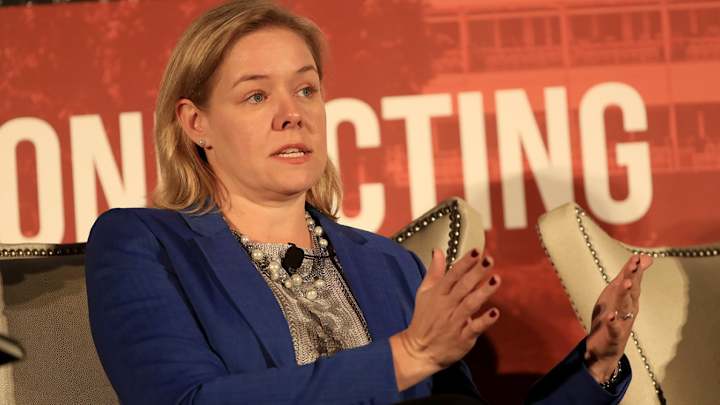USOC Picks Golf Executive Sarah Hirshland as CEO

DENVER — Sarah Hirshland is known as the tough negotiator who helped the U.S. Golf Association broker media and sponsorship deals, including its 12-year TV contract with Fox.
Her next job, as CEO of the U.S. Olympic Committee, will be a more delicate task — repairing a frayed relationship with athletes and a community that has grown wary of the governing body after a slew of sex-abuse cases they feel were not handled appropriately.
The USOC announced the USGA’s chief commercial officer as the new CEO on Thursday. She’ll replace Scott Blackmun, who resigned earlier this year to deal with health issues that undercut his ability to deal with the sex-abuse crisis that engulfed the federation.
“The USOC is at a critical time in its history and requires an energetic, creative and inspiring leader who is capable of building on past success while making sure that the athletes we serve are protected, supported and empowered in every possible way,” USOC Chairman Larry Probst said.
The USOC embarked on a four-month search that brought more than a dozen candidates into the fold. Hirshland will start the job later this month.
Before the USGA, she worked with Casey Wasserman, the chair of the LA 2028 Olympic effort, at Wasserman Media Group.
Wasserman called her a visionary leader. USGA CEO Mike Davis said golf’s return to the Olympics in 2016 helped Hirshland become familiar with the movement, “and now, with Sarah at the helm, this connection will only be strengthened.”
But Hirshland’s top task will be restoring credibility to the USOC’s efforts to provide safe atmospheres for its athletes. Sex-abuse scandals in swimming, gymnastics and taekwondo —to name a few — forced the USOC to create more uniform standards to protect athletes across all Olympic sports.
But the USOC’s portrayal of itself as a federation that only truly oversees the athletes during the three-week Olympic period every two years rubbed many people wrong, and made it sound as if its leaders weren’t ultimately responsible for the welfare of the athletes.
Under Blackmun’s tenure, the USOC helped open the U.S. Center for SafeSport, which took over the duty of investigating sex-abuse cases in Olympic sports and meting out the punishment.
Still, the USOC finds itself a defendant in a handful of lawsuits filed by athletes and even former U.S. gymnastics coordinator Martha Karolyi, all of which seek damages because of its role in the scandal.
“I ... recognize the challenges ahead as we navigate this critical moment in the USOC’s history,” Hirshland said. “We must protect, support and empower athletes, young and old, elite and beginner. Olympic and Paralympic sport in the United States must be a shining example, able to provide athletes with the benefits of participation in an environment free from abuse of any kind. The USOC has made great strides in this area and I look forward to carrying on that critically important work.”
